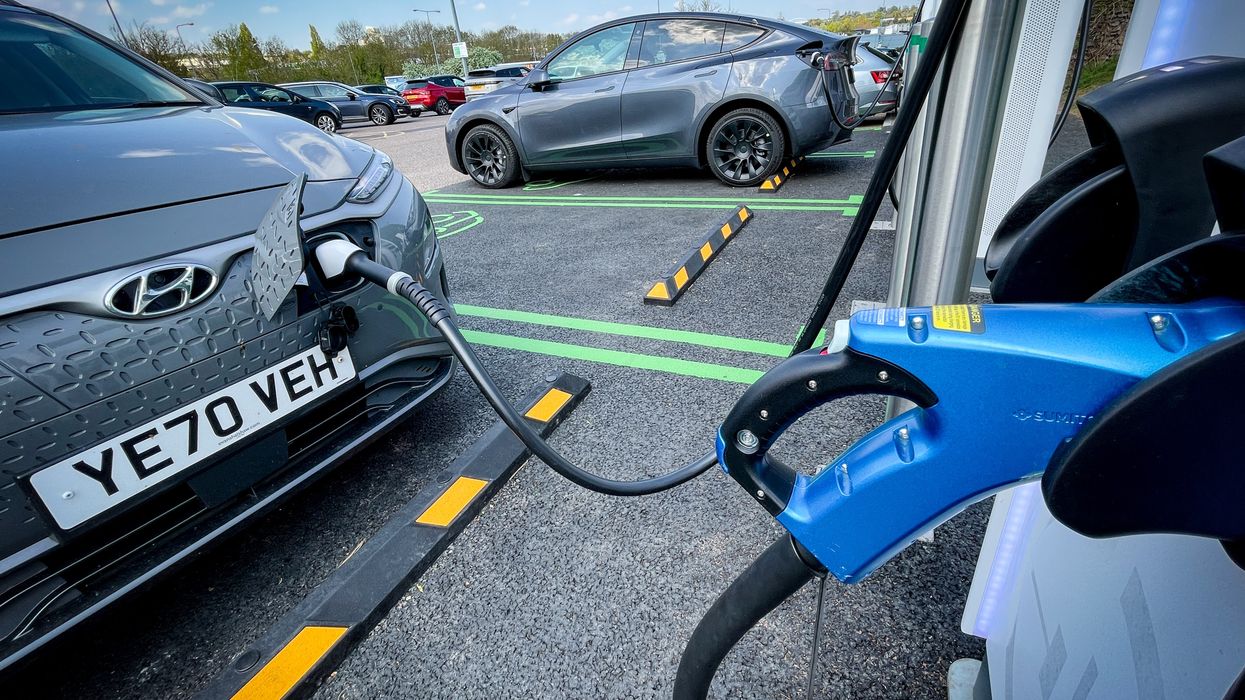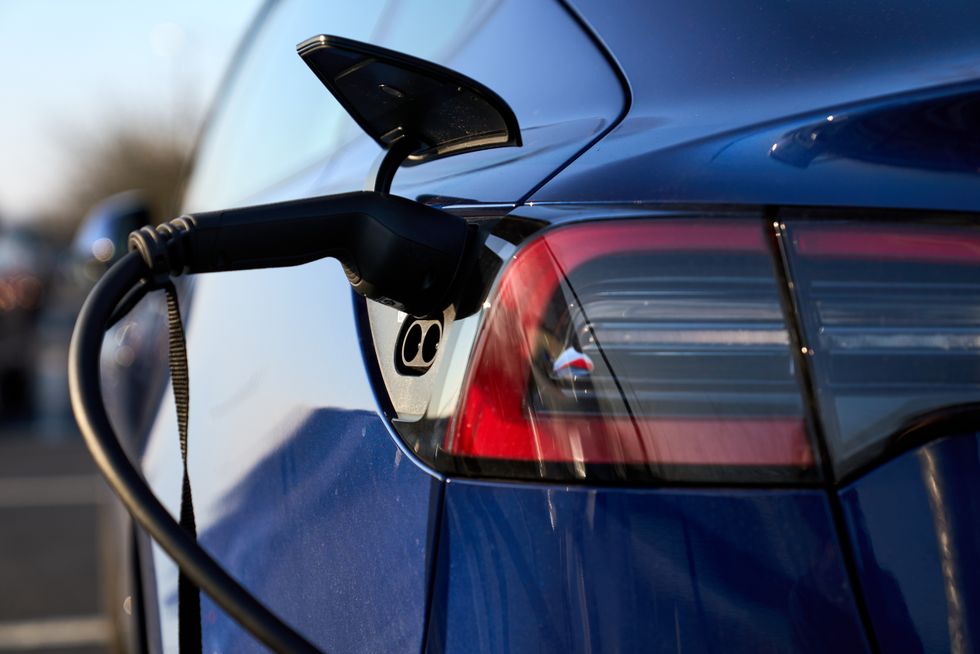Electric car mandate confirmed as 22 per cent of new cars sold need to be zero emission by next year

The Zero Emission Vehicle mandate will formally launch in January 2024
|GETTY

The ZEV mandate will require manufacturers to have 80 per cent of sales be electric by 2030
Don't Miss
Most Read
Latest
The Government has unveiled new plans to introduce the long-awaited Zero Emission Vehicle (ZEV) mandate, which is set to start in January next year.
The mandate will force manufacturers to ensure a minimum percentage of its sales are zero emissions, starting at 22 per cent of car and van sales in 2024.
This will slowly increase every year before reaching 80 per cent car sales and 70 per cent van sales in 2030, and 100 per cent electric sales in 2035.
WATCH NOW: Rishi Sunak on net zero pledges
Reacting to the announcement, the Transport & Environment campaign stated that it was welcome news that only a few changes were made to the ZEV mandate when compared to initial plans.
However, it argues that the Government could have been more ambitious, saying it was reflecting market trends rather than “stretch targets”.
Richard Hebditch, UK Director of T&E, added: “After all the talk from the Prime Minister about changing net zero policy last week, we now have confirmation of what’s actually going to happen in the automotive sector over the next few years.
“The zero emission vehicle mandate will pretty much end sales of new petrol and diesel cars by the early 2030s.
“Four out of five of new cars sold will be zero emission by 2030 and that will increase in the following years meaning realistically, that most mass-market car makers are still working towards an all-electric future by the early 2030s.”
Ginny Buckley, founder and CEO of Electrifying.com, also commented on the new mandate, saying car manufacturers would have to work harder to win motorists over to electric.
She added: "In order to give the UK car industry a fighting chance of meeting those tough targets, the Government also needs to take decisive action and speed up the planning process and grid connections that are holding back this critical rollout and damaging consumer confidence.”
A consultation on the ZEV mandate was launched in March and ran until May to hear opinions on how the final design of the scheme could be set out.
Manufacturers who do not adhere to the regulations face a fine of £15,000 per “excess activity in the car scheme” and £18,000 per van, although van fines will only be £9,000 in the first year.
These targets took inspiration from ZEV models used in California, Quebec and British Columbia, with California’s scheme often being touted as having set the pace for other governments to follow.
Richard Hebditch continued, saying: “Last week’s announcement pushing back the phase-out dates for new petrol and diesel cars could have blown a huge hole in our carbon budgets.
“But its impact is now set to be limited by a mandate that squeezes sales every year.
“Given the upfront costs of electric cars won’t be any higher than petrol cars in 2030, you’ve got to ask what the point of last week’s announcement actually was.”
Previous research suggested that EV-focused brands like Tesla, MG and Polestar would benefit from the new mandate given they would not need to pay any fines.
However, major manufacturers like Ford, Toyota, Audi and Land Rover would need to make huge strides to catch up with other brands and avoid paying enormous penalties.
LATEST DEVELOPMENTS:

The ZEV mandate will require manufacturers to have 80 per cent of sales be electric by 2030
|PA
Mark Harper, Transport Secretary, said: “The path to zero emission vehicles announced today makes sure the route to get there is proportionate, pragmatic and realistic for families.
“Our mandate provides certainty for manufacturers, benefits drivers by providing more options and helps grow the economy by creating skilled jobs.
“We are also making it easier than ever to own an electric vehicle, from reaching record levels of chargepoints to providing tax relief for EV owners.”










